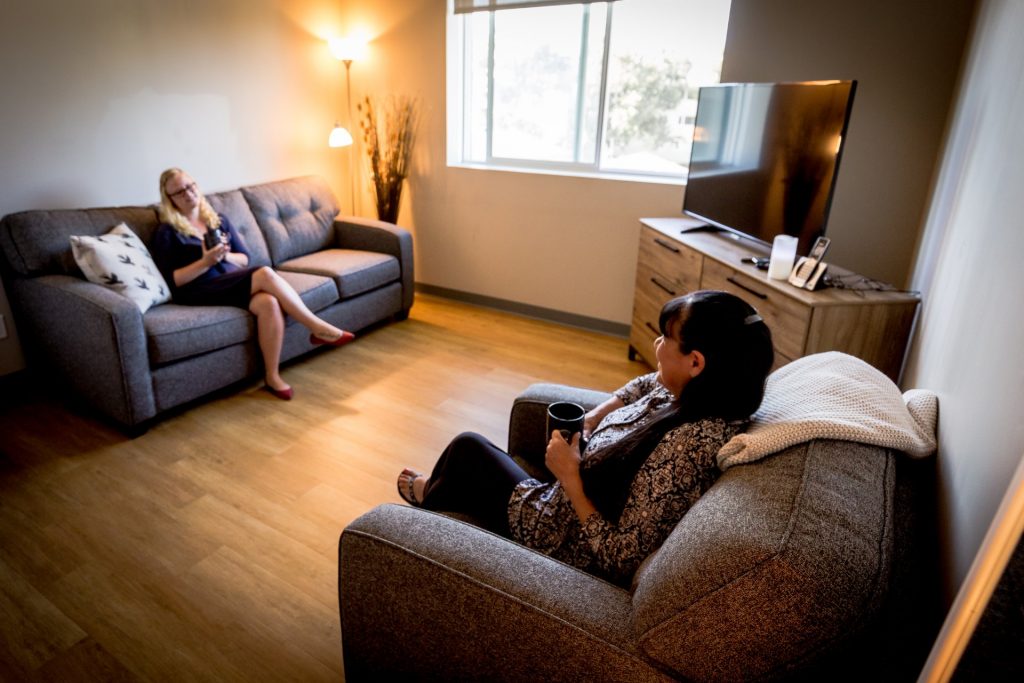Since the Safer Spaces program began in 2016, Odyssey House has helped 16 women fleeing violent homes get provincial certificates to end their leases early. Executive Director of the women’s shelter Ebony Rempel says finances can be a major barrier to leaving an abusive situation.
“The ability to support women in this capacity is crucial, especially in Grande Prairie when rents rates are typically higher, especially now we just saw that increase. As well, there’s not that many property management companies and landlords that you can access.”
Rempel adds that leaving with children poses an extra financial burden, as they’ll need a place to stay with enough bedrooms. Income inequality in Grande Prairie also means women earn a median income less than half of what men make, based on the 2016 census.
To qualify for the program, women need to give the government an emergency protection order, a peace bond, or a statement from a professional like a doctor or social worker that shows they or their children are in danger. They can then use the certificate to give at least 28 days notice to their landlord without being penalized. In its first year, 379 were issued across Alberta.
Landlords and property managers are also getting help in recognizing signs of family violence. The provincial government announced Thursday it is giving a $50,000 grant to the Centre for Public Legal Education that will be used to train them on what to look for, and what to do to help their tenants.
“Sometimes there isn’t that support out there for a landlord,” explains Rempel. “If there is signs of domestic violence, then that landlord could perhaps do some work or support that person getting the services and support from us, because sometimes people aren’t necessarily aware of our services.”
Odyssey House is working on a related program in-house using a City of Grande Prairie grant received last fall. It involves going into local business and industries and talking about what domestic violence looks like, and how people who are experiencing it can be supported.
“All women are at risk [of experiencing violence] and there’s women that reach out for our support that you wouldn’t necessarily identify as being in an abusive relationship,” stresses Rempel. “These are women that are working jobs 9 to 5 and have a secure income that’s coming in.”
Rempel says the shelter is currently full, and had to turn away 20 people last month. However, she stresses they are still able to support women in other ways, like financial and child welfare information.


